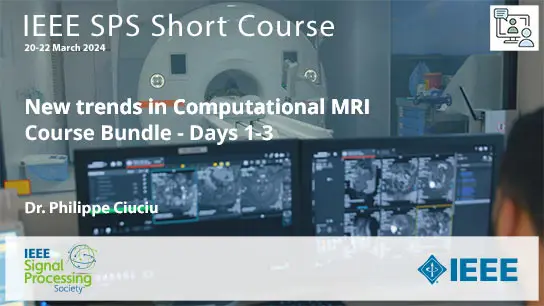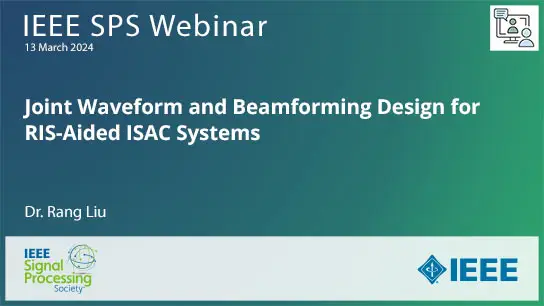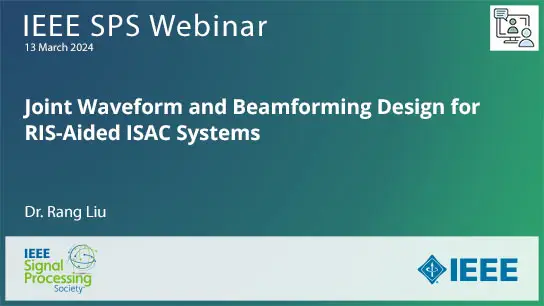CSR-PERT: Joint Framework for MRI and HARDI Data Reconstruction Using Perturbed Radial Trajectory Estimated from Compressively Sensed Measurements
Dr. Anubha Gupta
-
Members: FreeSPS
IEEE Members: $11.00
Non-members: $15.00Length: 02:10
14 Feb 2023
Radial sampling pattern is an important signal acquisition strategy in magnetic resonance imaging (MRI) owing to better immunity to motion-induced artifacts and less pronounced aliasing due to undersampling compared to the Cartesian sampling. These advantages of radial sampling can be exploited in acquisition of multidimensional signals such as High Angular Resolution Diffusion Imaging (HARDI), with tremendous scope of acceleration. Despite such benefits, gradient delays lead to samples being acquired from unknown miscentered radial trajectories, severely degrading the image reconstruction quality. In the present work, we propose CSR-PERT that is a joint framework, wherein these perturbed radial trajectories are estimated and utilized for image reconstruction from the compressively sensed measurements of (i) MRI data and (ii) HARDI data. The proposed CSR-PERT method is tested on one real MRI dataset with trajectory deviations and is observed to perform better than the existing state-of-the-art method at high acceleration factors up to 8. To the best of our knowledge, this is the first work to address the problem of estimating perturbed trajectories using the compressively sensed MRI and HARDI data. The method is also tested for varying combinations of trajectory deviations and sampling proportions. It is observed to yield very good quality HARDI reconstruction for a wide variety of scenarios. We have also demonstrated the robustness of the proposed method on real datasets in clinical settings assuming perturbed as well as noisy trajectories.


